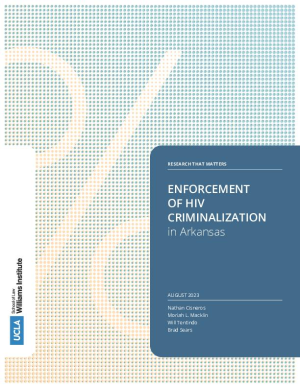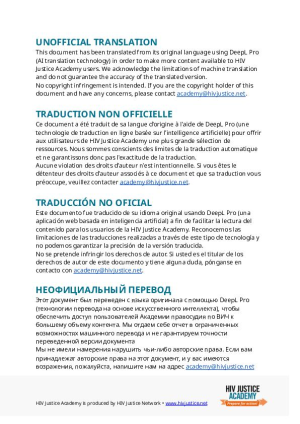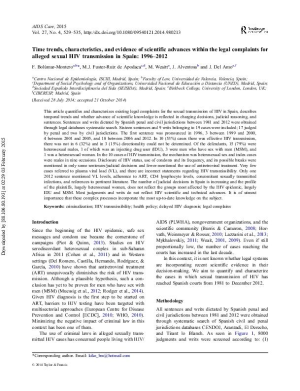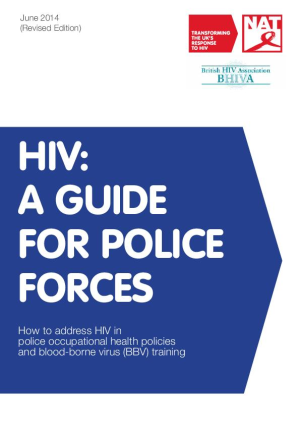Enforcement of HIV Criminalization in Arkansas
Using data obtained from the Arkansas Crime Information Center and the Information Network of Arkansas, this study examines the enforcement of HIV criminalization laws in Arkansas since 1989. It found that HIV-related crimes in Arkansas are disproportionately enforced based on race and sex and impact Black men the most.
OptTEST Fiche conseil 7 – Comment et où trouver des preuves pour un changement de politique ?
Explore comment changer la politique existante en présentant des preuves claires et compréhensibles pour soutenir le plaidoyer.
Ce document a été traduit de sa langue d'origine à l'aide de DeepL Pro (une technologie de traduction en ligne basée sur l’intelligence artificielle) pour offrir aux utilisateurs de HIV Justice Academy une plus grande sélection de ressources. Nous sommes conscients des limites de la traduction automatique et ne garantissons donc pas l'exactitude de la traduction.
Time trends, characteristics, and evidence of scientific advances within the legal complaints for alleged sexual HIV transmission in Spain: 1996–2012
This article quantifies and characterizes existing legal complaints for the sexual transmission of HIV in Spain, describes temporal trends and whether advance of scientific knowledge is reflected in charging decisions, judicial reasoning, and sentences.
HIV: A Guide for Police Forces. How to address HIV in police occupational health policies and blood-borne training, UK.
Includes information about how HIV is transmitted, what to do if exposed to HIV, how to respond to someone with HIV, and information about criminal prosecution for HIV transmission. Also has an easy-to-use check-list to ensure blood borne virus training and occupational health policies are fit for purpose and up-to-date. Endorsed by the British HIV Association.




